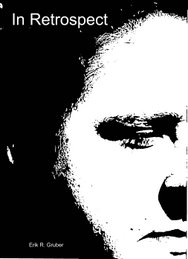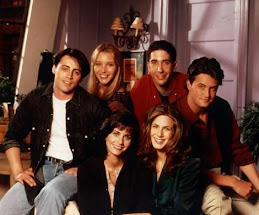I pray everyone had an enjoyable and relaxing Christmas break. I imagine a number of you, like me, are back at work for the next three days (the un-productivity of which may well set new standards for lost hours). If that is the case, my condolences.
Who else remembers the days when we would have nearly a month off for Christmas? At my former job we did a good deal of business with Ireland (our sister plant was in Galway) and the workflow came close to a complete standstill from December 1 to January 3. The corporate world takes the whole month off over there. I originally suspected this phenomenon was limited to the tiny, drunken island. But recently, while waiting for a flight out of LAX, I met a woman from Australia who was traveling for a month because Australia doesn’t work during the holidays either.
In other words, we’re getting screwed.
On a brighter note, I took advantage of the weekend to catch a couple of flicks I’d been wanting to see and I’ll give both glowing endorsements.
The first was Charlie Wilson’s War, the story of the rogue congressman (Tom Hanks) who, at the prodding of a wealthy socialite (Julia Roberts), managed to secure the funding that enabled the Afghan mujahideen to defeat the Soviet occupation during the ‘80s.
The film offers a fascinating look at history that has for the most part flown under the radar. I knew very little about Charlie Wilson going in (and why would I? He was a nobody politician from Texas), but now see that, despite his faults (womanizing, drinking, drug using…maybe), his impact on the last 25 years of American history are arguably unparalleled. Consider that he was solely responsible for arming and training the men who would become Al Qaeda. And that to a certain extent he saw it coming (I’d say more, but I don’t want to spoil anything).
The performances in Charlie Wilson’s War are, as I’d expect, nothing short of genius. Hanks as the charming and mischievous Charlie Wilson is what can only be described as typical Tom Hanks. This sounds like a knock on his performance; like he phoned it in. Not so. I mean to say it is the Tom Hanks we know and love (the Oscar winning extraordinaire) and that he is hands down (I won’t listen to argument) the best actor ever (dead or living).
Though Julia Roberts as the glamorous (if a bit self-righteous) debutante and Philip Seymour Hoffman as the volatile, underestimated CIA agent are more than capable of holding their own.
The second film I saw was Sweeney Todd: The Demon Barber of Fleet Street. Keeping with Tim Burton/Johnny Depp fashion, this offering is dark, creepy and obsessed with curiosities at the fringe of society.
With Burton, it’s sometimes difficult knowing what to expect. At his best (in my opinion Big Fish), he creates peculiar tales filled with characters longing to belong. At his worst (Planet of the Apes), he creates films where plot takes a back seat to spectacle. It’s impossible to deny his ability as a visual filmmaker, or the unique style that he has created and may as well copyright, but to say he can be inconsistent is somewhat of an understatement.
With this adaptation of the Broadway musical, Burton is at his absolute best. Every scene is a visual masterpiece, stunning in both artistic composition and brooding emotion. The London he creates is terrifying in its shadows, merciless in its squalor, and splendid in all its filth.
Johnny Depp as the vengefully murderous barber is seething in his wrath; his obsession with revenge permeates every word, every glance. He is not a natural Broadway singer, but that suits this role just fine. His rock tenor boils over with anger, making his hatred palpable. Helena Bonham Carter (Burton’s wife, and also not a natural singer) embodies the role of the lonely, desperate pie maker with a spot on slumming accent and a visible longing in her eyes.
Perhaps most impressive, Burton manages to make this musical subdued, intimate. I usually find that musicals adapted for the screen are overdone and silly. Grandiosity is fine on stage because the audience is further removed from the action. But in film we are invited to wander amongst the characters. It can be disarming if they inexplicably break out into song. Not so in Sweeney Todd. By avoiding any chorus line sing-along type scenes, Burton focuses on the story and the development of emotional tension. He ends up with a taut, character driven film in which the style beautifully serves, but never overwhelms, the flow of the story.
As a disclaimer, Sweeney Todd is almost overwhelmingly bloody. Burton has washed most of the color out of the film, rendering it nearly black and white. Yet the blood is a vibrant, startling red. When Mr. Todd takes his first victim, and the screen is filled with ruby, viscous liquid, be warned: you may be disturbed.
Thanks for reading.
Wednesday, December 26, 2007
Wednesday, December 19, 2007
Ecclesiastes
A few weeks ago I proposed a conversation about Ecclesiastes. It never really took off, but the topic has never been far from my mind. Now I’d like to re-propose. Read the book, and I assure you that you will be confused beyond repair. Let’s join together to vent about this frustrating, vague and contradictory book.
It’s hard to pinpoint what it is about Ecclesiastes that I find so irritating. Perhaps it’s the repeated use of the phrase “under the sun” (I realize it was a stylistic choice of the author, and much is likely lost in translation, but in English it sounds like a highly contrived and trite literary device). Really, the style of the book as a whole is a little mind numbing. At times it seems that the same phrase is being repeated on a loop. Yadda yadda yadda is folly…blah blah is chasing after the wind.
More likely, my annoyance lies in the fact that for the past 2 weeks my obsessive compulsive personality has been entrenched in the dualism and internal illogicality that Ecclesiastes has to offer. Seeking pleasure is meaningless (2:1-11), wisdom (1:18) and folly are both meaningless (2:12-16), toil is meaningless (2:17-19), advancement is meaningless (4:13-16), and riches are meaningless (5:10).
But then we get to chapter 3 (and even the end of chapter 2): “A man can do nothing better than to eat and drink and find satisfaction in his work. This too, I see, is from the hand of God” (2:24, this point is stated again in 3:22). A man can do nothing better than to find satisfaction in his work? I thought we already covered the fact that toil and pleasure are meaningless. 7:11 says “Wisdom, like an inheritance, is a good thing and benefits those who see the sun,” but wisdom is meaningless. Riches are meaningless, but 10:19 says: “A feast is made for laughter, and wine makes life merry, but money is the answer for everything.”
So what’s the point of this book? Or to ask the philosophical question: if this book holds any truth, what’s the point of life? If anything we can possibly work towards in the physical world is “chasing after the wind,” if any pursuit or gain is meaningless, what are we to do? If striving for wisdom leads only to grief, if our work is destined to be forgotten and the fruits of our labor fated to rot away, does purpose really exist?
On the surface Ecclesiastes seems to offer an answer: “A man can do nothing better than to eat and drink and find satisfaction in his work.” But for whom is this enough? If we see and understand that we are merely pawns, destined to return to the dust from which we came, what is our daily motivation? If we can’t accomplish anything that hasn’t already been done, why even try?
Maybe it’s so damned frustrating because it’s so true.
Thoughts?
Thanks for reading.
On a side note: Peter Jackson and New Line have ended their dispute over proceeds from LOTR, and he has agreed to become actively involved in the production of The Hobbit. http://www.nytimes.com/2007/12/19/movies/19jack.html?th&emc=th
The good news: PJ will executive produce, meaning he will have approval rights on all creative elements.
The bad news: he won’t be writing the script or directing the film.
And, if you read the NY Times article, what’s this about a sequel to The Hobbit (supposedly spanning the 60 years after the Hobbit and before LOTR)? When they inevitably screw this up, I hope Tolkien rises from the grave to seek bloody revenge.
It’s hard to pinpoint what it is about Ecclesiastes that I find so irritating. Perhaps it’s the repeated use of the phrase “under the sun” (I realize it was a stylistic choice of the author, and much is likely lost in translation, but in English it sounds like a highly contrived and trite literary device). Really, the style of the book as a whole is a little mind numbing. At times it seems that the same phrase is being repeated on a loop. Yadda yadda yadda is folly…blah blah is chasing after the wind.
More likely, my annoyance lies in the fact that for the past 2 weeks my obsessive compulsive personality has been entrenched in the dualism and internal illogicality that Ecclesiastes has to offer. Seeking pleasure is meaningless (2:1-11), wisdom (1:18) and folly are both meaningless (2:12-16), toil is meaningless (2:17-19), advancement is meaningless (4:13-16), and riches are meaningless (5:10).
But then we get to chapter 3 (and even the end of chapter 2): “A man can do nothing better than to eat and drink and find satisfaction in his work. This too, I see, is from the hand of God” (2:24, this point is stated again in 3:22). A man can do nothing better than to find satisfaction in his work? I thought we already covered the fact that toil and pleasure are meaningless. 7:11 says “Wisdom, like an inheritance, is a good thing and benefits those who see the sun,” but wisdom is meaningless. Riches are meaningless, but 10:19 says: “A feast is made for laughter, and wine makes life merry, but money is the answer for everything.”
So what’s the point of this book? Or to ask the philosophical question: if this book holds any truth, what’s the point of life? If anything we can possibly work towards in the physical world is “chasing after the wind,” if any pursuit or gain is meaningless, what are we to do? If striving for wisdom leads only to grief, if our work is destined to be forgotten and the fruits of our labor fated to rot away, does purpose really exist?
On the surface Ecclesiastes seems to offer an answer: “A man can do nothing better than to eat and drink and find satisfaction in his work.” But for whom is this enough? If we see and understand that we are merely pawns, destined to return to the dust from which we came, what is our daily motivation? If we can’t accomplish anything that hasn’t already been done, why even try?
Maybe it’s so damned frustrating because it’s so true.
Thoughts?
Thanks for reading.
On a side note: Peter Jackson and New Line have ended their dispute over proceeds from LOTR, and he has agreed to become actively involved in the production of The Hobbit. http://www.nytimes.com/2007/12/19/movies/19jack.html?th&emc=th
The good news: PJ will executive produce, meaning he will have approval rights on all creative elements.
The bad news: he won’t be writing the script or directing the film.
And, if you read the NY Times article, what’s this about a sequel to The Hobbit (supposedly spanning the 60 years after the Hobbit and before LOTR)? When they inevitably screw this up, I hope Tolkien rises from the grave to seek bloody revenge.
Wednesday, December 12, 2007
The Zot in Training
My life has yet to regain any sense of normalcy. I've been in intense training all week, have been working some long hours, and alas, I have nothing new to report. On the bright side, I can tell you anything you'd like to know about photoelectronics. How depressing...
I've let you down once again readers. Maybe I'm destined to be a disappointment.
I've let you down once again readers. Maybe I'm destined to be a disappointment.
Tuesday, December 4, 2007
The Zot on Vacation
Well ladies and gents, the Zot is on vacation this week in sunny California, visiting esteemed former Reader of the Month Christopher “Late Night” Casselman. When I left Minnesota on Monday morning it was 4 degrees outside. Today I was walking through Old Town Pasadena and actually started to sweat a little bit. Outstanding.
I’ll assume that you’re all aware of the recent report (put together by the 16 agencies of the US intelligence community) that Iran halted its nuclear program in 2003 and is very unlikely to be capable of producing a nuclear weapon before 2010.
Personally, I find it very reassuring that this faction of Islamic fundamentalists will be ill-prepared to initiate the nuclear holocaust for three more years. Now we can go back to our previous Iranian diplomatic stance of ignoring the problem. At least it must be comforting to all the nonagenarians (who will be dead soon anyways).
I understand that the point of the report is to demonstrate that once again the Bush administration exaggerated a threat, but is exaggeration really such a bad thing? America has a tendency to turn a blind eye to potential dangers until they become imminent dangers. The belief that Iran was developing a nuclear program forced our leadership to diplomatically engage a country that has been stirring the pot in the Middle East for years (by funding various radical factions), has called for the extermination of an entire group of people (Israeli Jews), and has been oppressing its people through Islamic law.
On a different note, I’d like to initiate a conversation on Ecclesiastes. I read through it yesterday, and found it baffling. It seems that the author repeatedly contradicts himself, and the chapter is extremely discouraging to anyone hoping to make a difference in the world. What are everyone else’s thoughts?
Sorry that this post is a bit brief, but like I said I’m in sunny California.
Thanks for reading.
I’ll assume that you’re all aware of the recent report (put together by the 16 agencies of the US intelligence community) that Iran halted its nuclear program in 2003 and is very unlikely to be capable of producing a nuclear weapon before 2010.
Personally, I find it very reassuring that this faction of Islamic fundamentalists will be ill-prepared to initiate the nuclear holocaust for three more years. Now we can go back to our previous Iranian diplomatic stance of ignoring the problem. At least it must be comforting to all the nonagenarians (who will be dead soon anyways).
I understand that the point of the report is to demonstrate that once again the Bush administration exaggerated a threat, but is exaggeration really such a bad thing? America has a tendency to turn a blind eye to potential dangers until they become imminent dangers. The belief that Iran was developing a nuclear program forced our leadership to diplomatically engage a country that has been stirring the pot in the Middle East for years (by funding various radical factions), has called for the extermination of an entire group of people (Israeli Jews), and has been oppressing its people through Islamic law.
On a different note, I’d like to initiate a conversation on Ecclesiastes. I read through it yesterday, and found it baffling. It seems that the author repeatedly contradicts himself, and the chapter is extremely discouraging to anyone hoping to make a difference in the world. What are everyone else’s thoughts?
Sorry that this post is a bit brief, but like I said I’m in sunny California.
Thanks for reading.
Subscribe to:
Comments (Atom)

















